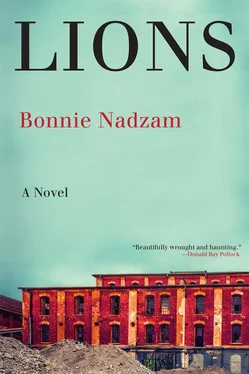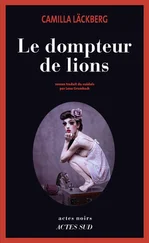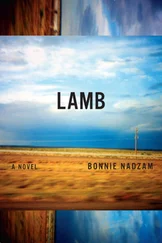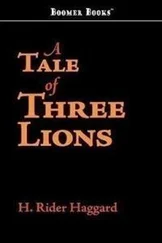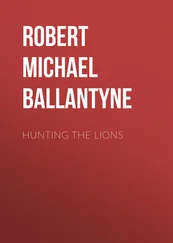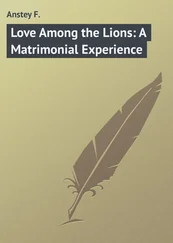“He wasn’t a ghost of a ghost,” the woman said. “He was my brother.”
“I’m sorry,” May said, red-faced. “We’re so sorry.” The woman nodded, raised a hand at May. Her eyes shone with tears. May walked around to the woman’s side of the counter and took her arm. “Won’t you please sit, please?” But the woman did not want to sit.
“Ah,” Boyd said, and shook his head. He touched the scar on his face, and looked out across the street at the bar window, which was still cracked.
“That dog was all he had left. She was all he had left.”
“We didn’t know anything about him,” May said. “We’re so sorry.”
“What happened?” The woman looked from May to Boyd and back again, her eyes wide. “Do you know what happened?”
May folded her hands, her gaze fixed on a black shoe streak on the linoleum floor. For several minutes, no one spoke.
The woman put her face in her hands. May went behind the counter and called Chuck Garcia, watching as the woman slowly sat down cross-legged on the floor. It was Chuck’s wife, Emily, who lifted her up off the floor. The woman wanted her brother’s remains, she said, and the dog’s.
“We’re going to help you out,” Chuck said, “whatever you need.”
“I need a minute,” she said. “I’m sorry, I didn’t plan to—”
“It’s alright,” Emily said. She had pulled on a pair of blue jeans under a night shirt, her feet in sandals. “Come on. We’ll take you home, get you some coffee.”
Chuck and Emily took the woman outside and she followed them in her minivan back toward the frontage road and the Garcias’ place. For several minutes Boyd and May sat side by side at the counter, not talking or moving.
“I feel sick,” May finally said.
“Me, too.”
“I think I want a beer.”
Outside they crossed the street. Something fluttering caught her vision, and she turned to face the junk shop. “Marybeth?” she called, and waved her hand in the dark. Boyd came up beside her.
“Baby Jesus,” he said. They glanced at each other, and rushed toward the rocking chair, where Marybeth Sharpe had expired in the afternoon heat earlier that day.
By lunchtime news of Marybeth’s death and the stranger’s visit had reached everyone remaining in town. Somehow Boyd seemed at the center of all of it, from early June to the night before.
“I heard one woman say you strangled her brother right here in the bar,” Dock told him.
Boyd shook his head.
“Another guy says you went out in the street, the two of you.”
Boyd nodded and folded the wipe cloth and hung it in his belt.
Dock laughed. “Most of them have the right of it though.”
“What’s that, Sterling? The story where I poured a beer on his head and forced him into jail for a night? The story where it’s my fault the dog died, and the man killed himself, and drove everyone away?”
Dock raised a hand. “Sorry, Boyd,” he said. “I meant no harm.” He finished and paid for his beer and drove back to the shop.
Annie was in the kitchen pounding a steak in the bunkroom next to a cookstove Dock had bought at the camping store in Burnsville. She was weepy and put her head against Dock’s chest.
“That poor old lady,” Annie said. “We shouldn’t have let her sit out there.”
“She was a sweetie pie,” Dock said. “And she was very old.”
“Somebody should have checked in on her,” Annie said. “I should have. You should have.”
“I know it,” he said, and stroked his wife’s pale hair, still shining, still golden. “But it’s OK how she went, too.”
Annie nodded. “It is, isn’t it?”
“Old lady loved that rocking chair.”
They both laughed, and Annie took Dock’s big fingers from her hair and kissed them.
Boyd called Chuck and asked him to remove the living ghost town signpost from the highway.
“That’ll be the end of the Lucy Graves,” Chuck said.
“We’ve had enough,” Boyd told him, and truth be told, Chuck was glad to hear it. You go into the Lucy Graves, he thought, and you want there to be more than a diner, and maybe there is more, but all you have to study it by is the ordinary inventory of the place: the white plastic ramekins of club crackers, packets of sugar, the smell of heavy-duty cleaner with which May scrubbed the stainless steel. Lions was the same way. Maybe sometimes you even entertained the possibility of some of its wilder stories — at night, in the bar, when everybody got to talking. Lamar Boggs, for Pete’s sake. But you should’ve known better. And when you thought back to the moments you wondered if it were true — Walker men tending a ghost up on the mesa — you should’ve felt pretty chastened. That’s the word Chuck’s grandfather would’ve used. People weren’t interested in the regular, workaday truth, but that kind of truth was the real miracle, he thought, and looked at the hands at the ends of his arms. He opened and closed them.
People in Burnsville would ask Chuck all through the fall, and even in the winter, and over the years to come, who that man was who drowned himself in the water tower in Lions.
“I’m not at liberty to say,” he would respond, regardless of the taunts and jabs from men like Boyd, or the remote politeness of a woman questioning him as Georgianna did. He respected the privacy of the man, and of his sister, who had requested it of him. And that, Chuck figured, was fair. You didn’t always get — you almost never got — the whole story of every man, woman, or child who asked something of you in this world. What you got was the moment they stood before you. You’d have to take your chances, make your best judgment, and do whatever you were going to do. There was a sort of resolve you had to consult that went deeper than the facts of a man’s personal history. At least, he came to think so.
Over the coming week, Leigh knew — she almost knew — that something wasn’t right. But here was a man with golden brown eyes and a real smile. Something about him like a lighted window in the dark. Here were his friends — intelligent, wide-eyed, and full of good words. They expected nothing unreasonable of her beyond her company. They were easygoing, she thought, lighthearted. If she was sometimes vaguely aware of a soft, faraway drumbeat — a reminder or a decision to live her life in a different way — it would be there later just as well as now. Not yet, she felt in every step as she walked to class, as she planned the evening, or the next week, confident as she did so in the unfurling of her life in a clear and perfect direction toward the house and family and job that would at last fulfill the cumulative desires born of her impoverished life in Lions. Not yet. Not yet.
Tonight, here was a clear blue dusk, a cool evening in late September. Chairs set out in rings on a patio. Here were ten thousand small and pleasant reassuring whispers in the rustle of the trees. A string of colored lights was pinned in twenty neat parabolas up and down each side of the street from lamppost to lamppost, and here was a door that opened to the sidewalk, inside the ringing of silverware and human laughter and warmth, the small and perfect notes of rounded fingertips across piano keys, and this was how you ignored the very clear and very peculiar sense that everything making you feel good was the wrong thing.
She moved with her new friends from the patio to a house, from the house to an apartment, from the apartment to a dorm room. They walked as if there’d been no world before they were born, and there’d be no world left when — in a thousand years, happy, old, and perfectly content — they passed away.
She told them about the strange and gaunt tableland north of Lions, where the air was always the breath of winter, and the dirt was white as chalk. They sat in circles on dorm room rugs and in chairs and on the ends of twin beds. Everyone had a bottled beer. Everyone wore a beautiful sweater. Everyone had something to say about what they’d read the night before. Everyone was bumping their knee against someone else’s, wetting their lips, smiling brightly.
Читать дальше
